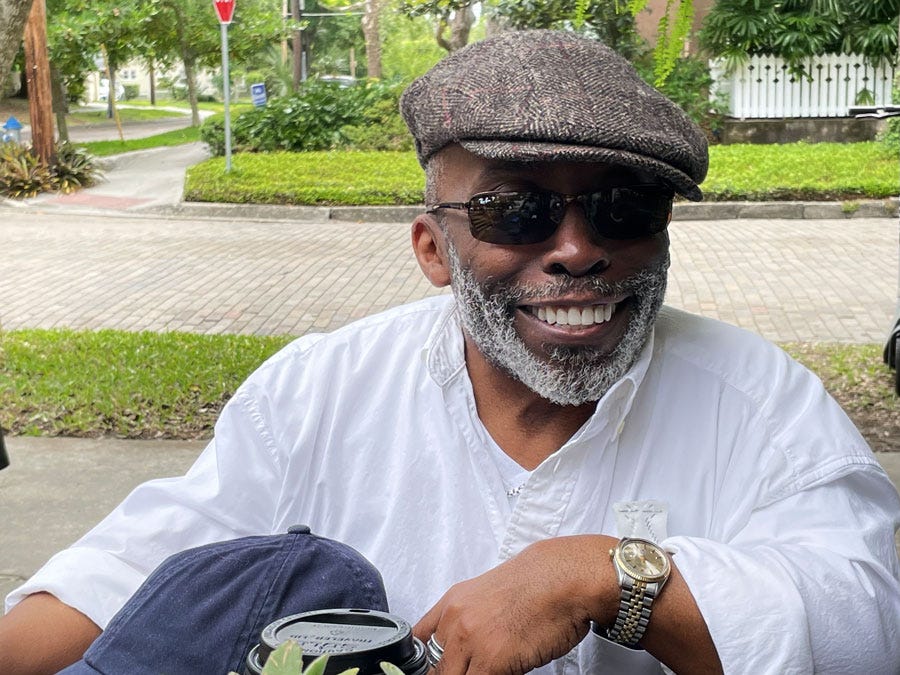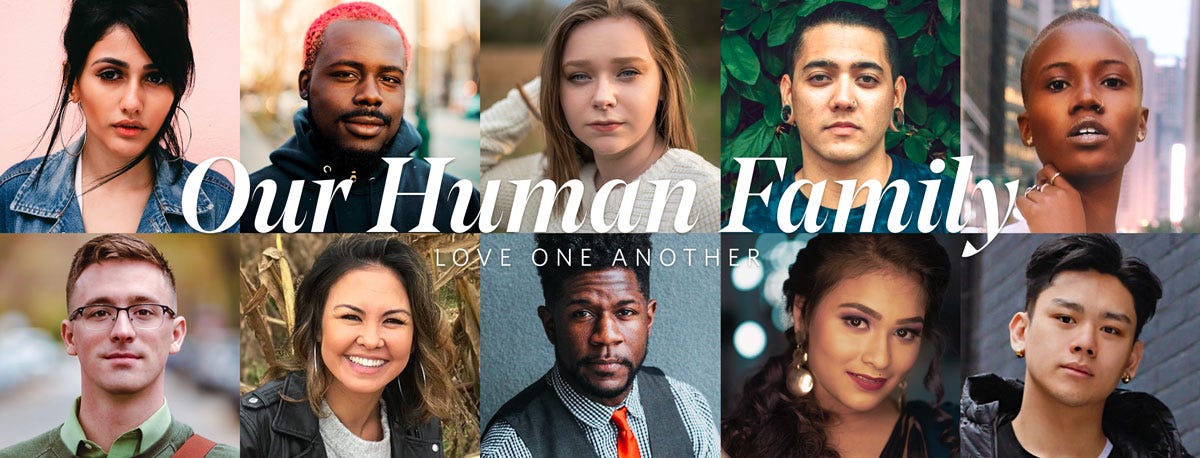
Photo by Rod Long on Unsplash

The history of Christianity is a bit like the history of America. If you taught it truthfully in schools, there are parts that would make a lot of kids “uncomfortable.”
But if America is about striving to create “a more perfect union,” I’d like to think Christianity is (or should be) all about preaching love and tolerance.
Because if the Old Testament was more about fire and brimstone, plagues and pestilence, and Ten Commandments set in stone, the New Testament was all about Jesus issuing one big command: “love each other as I have loved you.”
In a recent speech that went viral, Michigan State Senator spoke up for those true Christian values—and “seized back the moral high ground from extremist Republicans” while exposing “their twisted antics.”
At a time when the latest brutal assaults in the GOP’s ongoing culture war are attacking everyone and everything from minority and LGBTQ kids to teachers to history to math to free speech to Democrats to RINOs to Disney—and even the right for every child to be authentically themselves—McMorrow spoke up powerfully:
I want every child in this state to feel seen, heard and supported, not marginalized and targeted because they are not straight, white and Christian. We cannot let hateful people tell you otherwise to scapegoat and deflect from the fact that they are not doing anything to fix the real issues that impact people’s lives. And I know that hate will only win if people like me stand by and let it happen.
Clearly, it’s time for me to check in again with my friend Clay Rivers, who I interviewed here in 2020. In his 2012 memoir “Walking Tall”, Rivers introduced himself as “Short. Black. Christian. And gay.” His 2015 essay “How I Talk to White People About Racism” was published in the New York Times’ feature “A Conversation About Race.” And since 2019, he has been both the Founder and Editor-in-Chief of Our Human Family (OHF), an online magazine about achieving equality with the mission of “fostering meaning conversations that broad perspectives and offer hope.”
As readers of his memoir know, Clay Rivers is also a former Disney employee, with a storied career that began at Walt Disney World Resort in Orlando, Florida and encompassed roles as art director for Walt Disney World Resort Design and The Disney University, The Disney Stores, Disney Imagineering, and Disney Consumer Products.
Rivers is still based in Orlando, Florida, where new edicts by the state’s “Christian” Governor might prove problematic to Rivers not only as a “Black” and “gay” man, but also as someone who is a member of the Christian flock.
Clay Rivers

Q&A with Clay Rivers
First, congratulations on surviving Covid so far. I know Ron “DeathSantis” hasn’t made it easy to do that in Florida.
Thanks, Richard. I’m still testing negative and dodging Covid as best I can.
Second, what do you think of the recent viral speech by State Sen. Mallory McMorrow, a suburban white woman in Michigan, and what she says about “Christianity”?
Senator McMorrow’s speech is like a breath of fresh air. She hit the nail on the head when she said that Christianity and faith are about community and using your blessings to be of service to people who have less. Her message isn’t new, Christ lived and taught this over 2,000 years ago.
What is your sense of the notion that “God is Love”? And how Christians should apply Jesus’ command to “love each other.”
Without getting too preachy, “God is love” isn’t a pithy, hippy slogan from the 1960s that’s making a comeback. It’s in Scripture, specifically 1 John 4:8 and 1 John 4:16. Because scripture is always better understood when it’s considered in the context of the passage instead of cherry-picked, let me provide a setup for the verse. Right up front, I have to say I am a layperson and make no claims to being a “collar” or “scholar” of the Bible, so I apologize for any glaring errors in my interpretation.
So. God is love.
In 1 John 4:7-20, the Apostle John invites his listeners/readers to love one another. He explains that everyone born of God knows love, that “God is love,” and the source of all love, and anyone who loves knows God. Further, he says that because God first loved us and sent his Son as atonement for our sins, we are also to love one another. And at the end, he calls those who say they love God and hate their brothers and sisters liars, because if they can’t love someone they’ve seen, they can’t love God who they have not seen. As children of God, we are to reflect our Father’s nature by loving one another without preconditions.
The verses in which Jesus instructs his disciples to love one another make up my favorite Bible passage. For a little context here... on the night before he’s crucified, during the Last Supper, Jesus gives the Disciples a new commandment: that they love one another. To stress its importance, Jesus repeats it three times in as many sentences. The first time, he tells them to love one another. The second, Jesus tells them how to love one another as he loved them. And the third time, he tells them people will know they are his disciples if they love one another.
You asked, “How should Christians apply his command?” [laughs] Generously and without precondition. Dare I say, liberally? If Christians want to know how Christ loved, all they need do is look at his life, the miracles he performed, and the parables he told. He was born a refugee. He didn’t hobnob with the rich and powerful. He hung out with the marginalized. It’s all there, a veritable how-to guide on how “Christians” are to love.
For those who don’t know, Jesus met people where they were in their life, and by that I mean he met them at their point of need, be it physical, emotional, physical, psychological, or spiritual. He healed, fed, rescued them, or calmed their nerves, told them of the Kingdom of God, and sent them on their way. He never said, “Why don’t you go pull yourself up by your bootstraps and get your life in order, then we can talk.” He even helped those who weren’t Jewish (The Woman of Samaria, Jesus Heals a Centurion’s Servant).
And this love, Jesus speaks of isn’t a one-off. It’s not a one-and-done deal. It’s not rendered for show. Christians are to be faithful in their continued ongoing service to others (Galatians 6:9).
There’s a lot of discussion about the term “woke” being used as a pejorative by the GOP? Was Jesus “woke”? Do you call yourself “woke”? If not, how do you describe yourself?
The GOP is using “woke” as a pejorative against anyone who doesn’t subscribe to their political agenda. There’s no debate about that.
Like so many words, “woke” has evolved from its original meaning and changed with the times. Today, it depends on who is using the term and the context in which it’s used. Vox and Wikipedia both give extensive background on the origin of the word. In a nutshell, Black people originated the phrase “stay woke” in the 1920s as a call to continued social and political awareness. In 2014, during the Ferguson demonstrations, the phrase was truncated to “woke” and used to describe people who learned about social inequities and marginalized people’s oppression and sought to set the country on a more equitable path.
That’s a good thing, right… waking from a coma or delusion that things are wonderful for everyone to the reality that everyone doesn’t experience the world the same way, right? Well, it was until a certain segment of the population decided to use the term as a cudgel against everyone who wasn’t and isn’t in their non-melanated, racist, and bigoted clique. Where’s the crime in learning the truth and wanting to affect positive and equitable change?
That some folks would co-opt a positive term and use it as a pejorative for their own purposes comes as no surprise. That is evil’s standard operating procedure: steal and kill and destroy (John 10:7-10). After all, it’s so much easier to remove a speck from a brother’s eye than it is to remove the log from their own, right? (Matthew 7:1-5)
Was Jesus “woke”? [laughs] Did Jesus know the truth that the people of his time were being crushed under the weight of both the religious leaders’ legalism and the brutality of the Roman Empire? Yes, and it broke his heart. Did he seek to open people’s hearts and minds to a better way of living? Yes. Did his actions match his words? Yes, perfectly.
I guess you could say Jesus originated woke before “woke” was woke and viewed as something to be stamped out at all costs.
You know, Richard… I have never thought of or referred to myself as woke, that’s for other folks to do. My self-concept is a mix of how the Bible says God sees me (Ephesians 1:13-14, Ephesians 2:8-10, Romans 10:9-13), how people react to and interact with me, and the impact I think I’m having on people. If people want to describe me as woke in the positive sense, I’ll gladly wear it as a badge of honor. And if they apply it to me in the negative sense, that’s a potential opportunity for a conversation. Over the years I’ve learned that just because someone calls me a negative or positive name, or thinks of me in a certain way, that doesn’t make it so. I describe myself as a guy who loves God and is trying to get people to love one another.
What do you think of the Ron DeSantis “anti-woke” bill and the GOP war against Critical Race Theory (CRT)?
I think a more accurate name for the “anti-woke” law would be the “‘anti-’ Christ/pro-bully” law. All the gesticulation over Critical Race Theory is malevolent political theater. It’s a knee-jerk reaction to re-examination of sterilized accounts of American history that omit unpleasant (f)acts. Sometimes they implicate white heroes and reveal the impact of those acts upon the lives of Black, Indigenous, and People of Color. The truth is that all white people weren’t heroes and all People of Color weren’t villains or living in enslaved bliss.
In Germany, students learn about the history Nazis and the Third Reich, not to cause strife and division, but to prevent future generations of German citizens from repeating the same mistakes of the past. Are some white parents so afraid that their children’s minds are so weak, so frail, so feeble, that they can’t distinguish between the past and current events? Are they afraid their minds will melt like snowflakes in the face of honest discussion about the past?
If six-year-old Ruby Bridges could endure the taunts and jeers from white onlookers as the first Black student to attend an all-white school in her town, white students today can surely endure reading about it. If four Black Birmingham girls between the ages of eleven and fourteen who were murdered in a church bombing by the Ku Klux Klan were old enough to experience that historic tragedy firsthand, surely today’s white students can survive reading about it without their heads exploding. And if fourteen-year-old Emmett Till was old enough to be abducted, tortured, and lynched, there is no reason white students cannot learn that incident took place.
Re-examination of history for a fuller, more accurate, more inclusive chronicling of America does not pit one ethnicity against another, nor does it lay blame on Mee-maw and Paw-paw. And it certainly doesn’t cloak white folks in guilt and shame. It does two things: 1) it points out pitfalls to avoid if we are to move into the future, united as one people, and 2) it prompts meaningful conversation about our shared humanity. Today’s government officials are not responsible for what happened seventy-five, one hundred, or even two hundred years ago. But the onus falls squarely on their shoulders when they bar today’s youth and tomorrow’s body politic from the truth. Doing so paves the way for this nation to repeat its most heinous and tragic acts.
How do you think DeSantis’ “Don’t Say Gay” bill will affect the LGBTQ community?
This is a-whole-nother can of worms that deserves its own stand-alone interview. In a nutshell, I think it puts LGBTQ people in harm’s way.
What advice do you have for Christians who want to preach love?
Hmph. Christians of all stripes have a couple of huge image problems to overcome. We, Christians, are called to love one another and share the gospel. Unfortunately, collectively we’ve failed spectacularly on both counts. By selling out for a political power grab, actively practicing indifference at best, and outright malevolence at worst, all in Jesus’ name, well-meaning Christians turn, no, chase people away who seeking a relationship with Christ. Nones (people who claim no religious affiliation) see that, as do fellow Christians, and it’s a huge turn-off to the whole church experience that leaves people with no use for the church. Who wants to be grafted into a body for all eternity that shamelessly practices prejudice and bigotry? Show of hands.
My advice to Christians who want to preach love? Don’t. Just don’t.
Follow Jesus’ example: Show, don’t tell. Show people you love them in the things you do. People know you love them in the way you respond to them. Disrespect and apathy are nowhere to be found in love. It’s all in the way you respect and care for people. It’s in the way you actively listen to someone; how you empathize with them; the ways you show respect for their humanity, their culture, the things that make them who they are; and the way you partner with them in their struggles. Love is about putting someone else’s needs ahead of your wants.
And what advice would you give to people who want to support causes that promote tolerance throughout society?
Forget tolerance. The concept of tolerance really annoys me. You know why? Tolerance doesn’t even rank as a dollar-store version of love. And that’s the problem, people think tolerance is a cure-all, a shortcut. It’s not. Tolerance says, “I don’t necessarily care for or like you (or something about you), but I’m going to go out of my way, be a ‘good’ person, and put up with you anyway.” That’s a thin veneer of condescension laid over a whole lot of intolerance. The world needs less tolerance and a lot more love. There’s a reason Jesus didn’t command us to tolerate one another. Tolerance pales in comparison to love.
Any final thoughts?
Yes! Thanks again, Richard. It’s always a pleasure. You ask great questions. And I’m sure you already know my final thought: Love one another.

More about Our Human Family:
Our Human Family celebrates the inherent value of all human beings. It is a 501(c)(3) charitable organization that advocates for racial equity and inclusion in America by creating and offering workshops, panel discussion groups, targeting key educational programs for sponsorship, hosting guest speaker events, and much more to help achieve racial equity and inclusion for everyone.
OHF Weekly is a newsletter and website inspired by the reality that despite the racial bigotry, hate speech, and acts of violence, there are scores of people working to make the world—their world, their sphere of influence—more equitable by dispelling the lie of race and the practice of racism, and replacing them with the truth of love and equality.
Subscribe to OHF Weekly and support the work of Our Human Family to help further the national conversation on better race relations and widespread equality in America.
All content to this ad-free email newsletter is free—there’s no paywall. But the support of paid subscribers is always welcome!
Subscribe to Unprecedented
Subscribe to the newsletter and unlock access to member-only content.